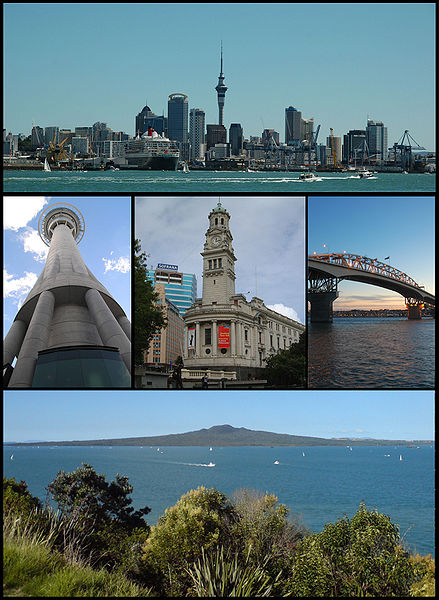

Picture by Taifarious1, Creative Commons Attribution-ShareAlike 3.0 License.
THE patent situation in New Zealand currently resembles the situation in Europe. Multinationals and lawsuits-loving lawyers are trying to use or even abuse the system for their own agenda to be advanced and interests promoted at the expense of citizens' (including developers). We find some of these people in Twitter. "Twitterer suggest general dislike of patents is crypto-luddism," writes Carlo Piana, but "It's the opposite: current system stifles innovation. [Software patents] hundredfold so..."
The Uniservices conclusion is just about opposite to the MED policy driver behind the current Bill – patents are to be discouraged because their benefits will flow overseas.
And what of the software ban? Well, the select committee has had a bit of a bob each way. The amended Bill bans patents for “computer programs.” But the explanatory note says their intention is not to ban patents for “embedded software” – and then says trying to define the difference between the two was too hard, so the intellectual property office should be left to draft appropriate guidelines.
I participated in the KnowRiۤht conference in Vienna, Austria, where I was invited on ultrashort notice to give a speech on "Software Patents, Standards & Competition".
The big controversy at that conference clearly related to the future of the European patent (and patent court) system. I will report on that in a later post. Previously I'd like to summarize the outline of intellectual property rights matters on the EU agenda that a European Commission official gave at the conference.
Before I get into details of Dr. Jens Gaster's comments, I have to mention that he pointed out at the beginning of his speech that he was not acting as a spokesman of the institution that employs him (the European Commission) but instead in a personal capacity as a lecturer. It was an academic conference and Dr. Gaster continues to pursue an academic career in addition to his work for the Commission.
The FFII criticizes that an incredibly powerful, international patent and patent court system would then be able to take controversial decisions while there wouldn't be a single powerful and democratically elected legislator that could correct undesirable developments through new and better laws.
The FFII doesn't mean that the judges themselves should be under democratic control (judges should always be as independent from political bodies as possible) but that there should be a lawmaking body that can pass new legislation related to all aspects of patent law. Even the European Parliament wouldn't be able to do so. It has to share legislative powers in the EU with the national governments of the Member States, and the geographic scope of the UPLS would go beyond the borders of the EU itself.
Critics of the UPLS also have structural concerns, such as over what would happen if such a relatively autonomous court system exclusively specialized on patents and detached from the general judicial framework had to rule on a case in which a party claims fundamental rights under its country's constitution.
[...]
For the event that the European Court of Justices "gives some green light" for the reform initiative, Benjamin Henrion predicts "huge lobbying."
The primary role of The Norwegian Industrial Property Office (NIPO) is to support Norwegian industry and promote economic growth. Raising awareness and increasing understanding of industrial property rights is an essential element in enabling companies to secure their investments and develop a competitive edge in the global market.
“It is innovation that distinguishes the leading countries from all others.”
--Miguel Sebastián, Spain's industry ministerThat's nonsense. See the presentation from the FFII for gory details about UPLS.
The article says: "Barnier had planned to present the relevant draft legislation on 18 May, in time for a political agreement by industry ministers at a meeting on 25-26 May, the last they will have under the Spanish presidency. But officials said that Barnier was becoming frustrated with Spain's unwillingness to negotiate on the dossier or to prioritise work on it in the Council."
Well, Spain should be congratulated. It is doing the right thing here. As we already know: "Sweden brokered a deal on the specifications for an EU-wide patent during its presidency of the Council of Ministers in the second half of 2009." We wrote about this at the time.
Lastly, Spain's industry minister Miguel Sebastián is quoted as saying, “It is innovation that distinguishes the leading countries from all others.” As everyone ought to know, patents and innovation are not the same thing and what Barnier is proposing opens the door to software patents in Europe. ⬆